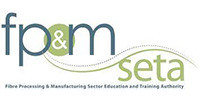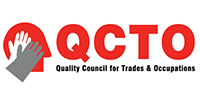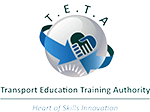A safety officer course is a surefire way to secure a stable job in South Africa. As of the first financial quarter, South Africa’s youth unemployment rate is at 39.2%. This means that more people are looking to enter job fields that are not oversaturated enough to pose an issue with finding long-term employment and completing a safety officer course may just open doors for you.
Always take the time to conduct thorough research into whether an education or upskill service is properly qualified, and how much weight one of their qualifications holds. EMCARE is officially registered and is recognised by authoritative bodies such as the Department Of Labour as well as AgriSETA. Completing our safety officer course will ensure you have all the theoretical and practical skills and knowledge to add value to the workplace.
How To Prepare For A Job Interview
After completing a safety officer course such as the one EMCARE offers, your first job interview is really a chance to flex your knowledge on company policies, Occupational Health and Safety Act know-how, and industry standards.
Your role after finishing a safety officer course has the potential to shape the future of employee health and well-being. As such, preparation is essential in order to pass the interview and be successful in this role. Here are some tips to help you prepare for your security officer interview.
Do your research on the company you are interviewing with: Research the company thoroughly before the interview. Understand your industry, the types of threats your employees face, and your compliance needs. Understanding your company’s vision and mission will help you better understand how its policies and procedures affect employee safety.
Contextualising and understanding this information will be particularly easy if you have completed a safety officer course, as you have learned the skills to analyse and assess safety protocols and procedures.
Know safety regulations and standards: Those who have completed a safety officer course must be familiar with occupational safety regulations and standards. You need to know the minimum requirements and best practices so that you can ensure a company complies with all of them, especially if you have just finished a safety officer course.
Practice asking contextual questions: During the interview, the recruiter may ask how you handle various security-related scenarios or how you implement your security policy. Practice your answers ahead of time so you can answer these contextual questions.
Ask a friend or colleague to role-play the interviewer and gain insight on how to improve your answers. It’s also a good idea to be prepared to discuss your experiences with various aspects of health and safety.
Be professional and personable: As a newly-certified safety officer, you will interact with employees, management and other stakeholders. Professionalism, empathy and effective communication skills are essential for this job.
Dress appropriately, greet the interviewer with a warm smile, and maintain eye contact throughout the interview. Candidates who are empathetic and good-natured are more likely to be hired than candidates who appear to be strict and aloof.
Questions That May Be Asked During A Job Interview

When applying for safety officer positions, it is important to be prepared. You may be a bit jittery after just finishing a safety officer course, but even interviews you don’t ace can help you learn where to improve.
- What inspired you to pursue a career as a safety officer?
Answer: Describe your passion for ensuring a safe workplace and the motivation behind your career choice.
- What do you know about the safety officer role?
Answer: Address the responsibilities of the safety officer, including conducting audits, training employees, developing safety protocols, and ensuring compliance with regulations and laws.
- What are the most common causes of work-related injuries and how can you prevent them?
Answer: Discuss the most common causes of accidents from experience and industry research and give examples of how to prevent them.
- How do you keep up to date with the latest regulations and safety standards?
Answer: Mention the industry associations and certifications you belong to and explain how you stay up to date with new regulations.
- How do I create and implement a security program?
Answer: Discuss steps to develop a safety program, including risk assessment, policy development, employee training, and compliance monitoring.
- What would you say is the biggest challenge in a safety officer’s job?
Answer: Describe a difficult experience you had and how you overcame it. It also emphasizes the need for problem-solving skills, communication skills, and attention to detail.
- How do you communicate safety protocols and procedures to your employees?
Answer: Emphasise the importance of using multiple channels, involving employees in the process, and communicating clearly to ensure understanding and acceptance.

-
What action will you take if you find that your employees are disregarding your security protocols?
Answer: Mention the importance of addressing concerns promptly, taking disciplinary or corrective action, and retraining as necessary to prevent incidents.
-
How do you measure the effectiveness of your safety program?
Answer: Mention the use of metrics such as incident rates, compliance rates, and employee feedback to ensure the success of your security program.
-
What is your experience with workers’ compensation claims?
Answer: Mention your previous experience dealing with workers’ compensation claims, including how you investigated the accident and assisted workers in the process.
-
How do you prioritise safety at work?
Answer: Discuss how safety is always a top priority as a safety officer and what steps you are taking to ensure that safety is never compromised.
-
Have you ever had to deal with a safety crisis?
Answer: Mention any safety crises you’ve dealt with in the past, including how you handled them, the steps you took to resolve the situation, and any changes to security protocols that resulted.
-
What would you say is your greatest achievement in security?
Answer: Highlight any safety projects or initiatives you have undertaken and the positive impact they have had on safety outcomes. Highlight the accredited safety officer course you have completed.
-
How do you handle disputes related to safety issues?
Answer: Mention the importance of showing respect and empathy when addressing safety concerns, engaging with stakeholders, and finding mutually beneficial solutions.
-
How do you balance security and operational requirements?
Answer: Explain how security and operational requirements are interdependent and how it is important to find ways to balance them to ensure that both are met.
-
How do you conduct safety training for new employees?
Answer: Mention the importance of providing comprehensive training, including both classroom and hands-on training, to ensure new hires understand safety protocols and procedures.
















